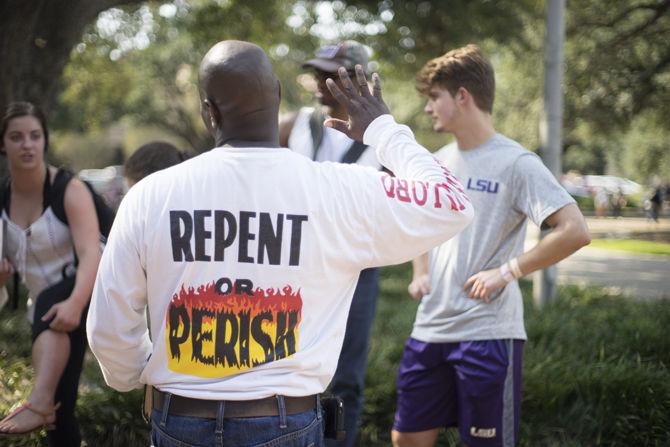The concept of tolerance is widely supported and majorly directed towards traditionally marginalized groups; however, this ideology has yet to extend to political parties and groups on college campuses.
Intolerance undoubtedly dwells and brews on college campuses. It’s hard for students to have intelligent debates and conversations about politics on campuses when certain political figures are kept off campuses because of their views.
It’s beyond political figures, though — intolerance has expanded to include students as well. One of the best ways of growing in one’s political view or argument is to understand the opposing view, yet it seems more often than not that a political conversation turns into a nasty, name-calling waste of time. This is noticeable on TV, whether it be on political networks or in presidential candidate debates.
The main problem is many conservatives view liberals as “snowflakes” or “dim,” while many liberals view conservatives as racist and/or sexist.
Instead of trying to hear the opposing party out and understand their arguments, political parties try to silence the other’s views through using tactics such as assuming someone is a snowflake, dim, sexist or racist. No matter what political beliefs someone has, their views should still be heard. The right to say what you believe in is protected by the First Amendment- so why are college students trying to silence their peers on campuses?
The First Amendment was intended to protect the freedom of speech — even if it may be tough to hear, or not the majority opinion.It’s important to protect the different beliefs on controversial topics, no matter the view.
Some may argue that some speech is ‘hate speech,’ and should not be tolerated- but who decides what is hate speech and what is not? Ultimately, it is left to the eye of the beholder. Either way, even if a view appears hateful, there’s a fine line between that and harassment. Even if speech seems hateful, it is still constitutionally protected.
At the end of the day, one cannot advocate for tolerance and equality for all people and groups if he or she cannot stand to hear an opposing political view. We cannot continue to silence political parties on campus, or condemn or threaten them because they have opposing views. We cannot continue to de-friend people because of a political view.





